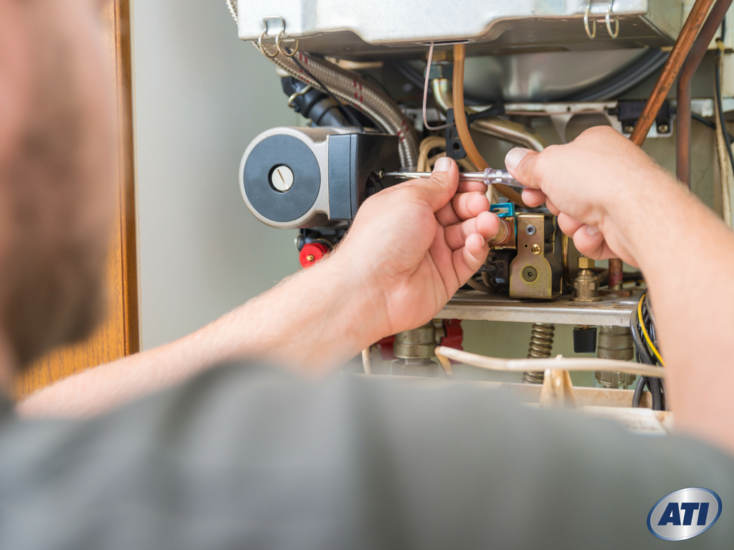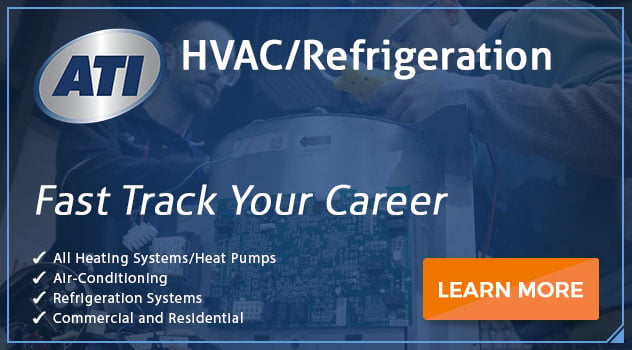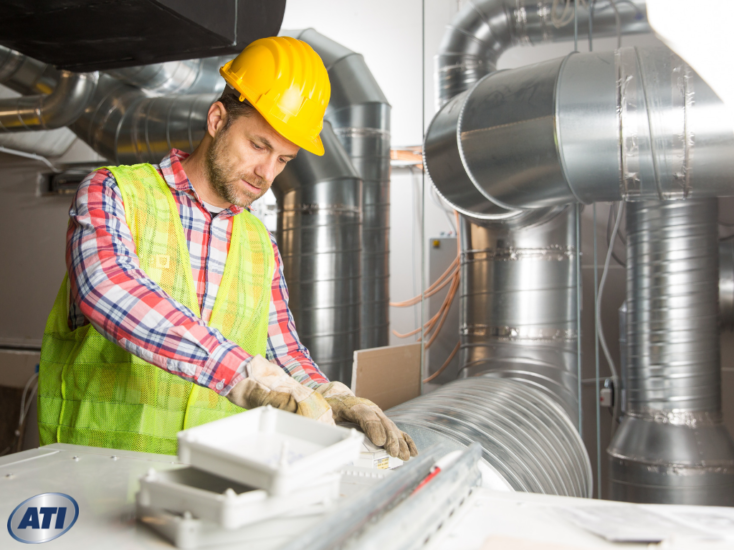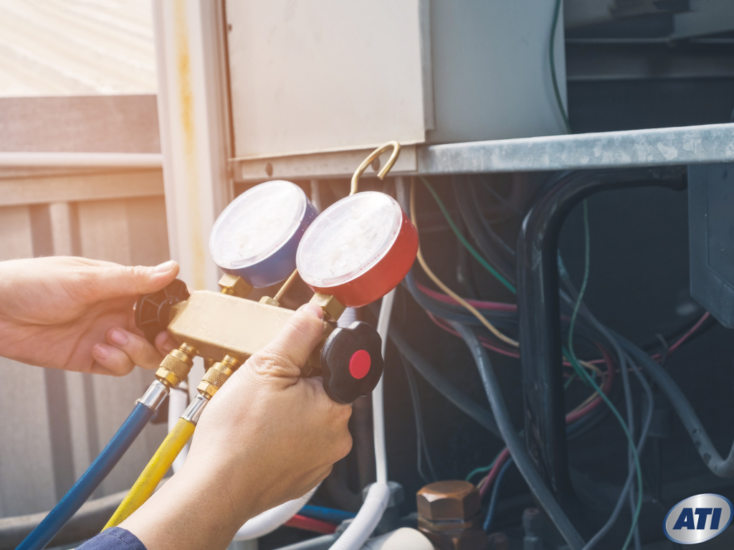Virginia HVAC License Requirements: Do You Need More Training?

Heating and air conditioning units are an essential part of our daily lives. While most people enjoy the convenience that these units bring, they do not spend a lot of time thinking about the units until one of them breaks down. When that happens, the first person to call is an HVAC technician.
With the continued rise in new heating, ventilation and air conditioning technology, the demand for skilled technicians to help install advanced systems and repair or replace the old ones is now more than ever. The wages reflect this demand as the median annual pay in this field is $45,910 per year (according to the Bureau of Labor Statistics).
When operating HVAC systems, there’s danger involved and a lot can go wrong. It’s therefore imperative for everyone to only hire a licensed Virginia HVAC technician. A license shows that the you have professional training and qualification to perform installation and repair tasks within Virginia.
Virginia HVAC License Requirements
There are three levels of licensing you can attain in the Virginia HVAC business. These include journeyman, master, and contractor. Pre-approval from the state is required before you go through the licensing examination process. Conversely, if you are moving to Virginia from another state and you already hold a certification or a currently valid journeyman or master license, you’ll be required to provide a copy of the certification card or license for you to sit for the same level examination. To be eligible for each license, you’ll have to meet certain requirements as outlined below:
Requirements for Journeyman License
- A degree or certification of a two-year training program and a practical experience of two years
- 80 hours of formal vocational training and a trade experience of six years
- 160 hours of vocational training and five years of trade experience
- 240 hours of formal training and four years of trade experience
- Ten years of practical experience confirmed by affidavits from employers or others who observed the candidate at work; OR
- 1 year of practical experience and a bachelor’s degree in an engineering curriculum from a college or university with accreditation.
Master License
To get your master license, you need either ten years of practical experience in the trade validated by affidavits from employers or others who observed you at work or one year of practical experience as a licensed journeyman in Virginia.
Requirements for Contractor Licensing
HVAC contractors are classified into Classes A, B, and C. Licensed Class A contractors are allowed to work on all project, regardless of the size and complexity. No fiscal restrictions apply to them. Class B contractor licensing allows HVAC contractors to work on projects not exceeding $120,000. They have restriction, which indicates that they cannot accumulate total projects beyond $750,000 annually. Class C contractors can work on projects not exceeding $10,000. They cannot accumulate total projects beyond $150,000 annually.
To receive a contractor license, you must meet the following requirements:
- Submit an application to the DPOR
- Carry insurance
- Complete a course that takes eight hours
- Pass the General, Law, and Advanced examinations
- Pass specialty exams required for the particular trade
- Have a minimum of 5 years of experience for Class A contractors, 3 years for Class B contractors and 2 years for Class C contractors. You must also be able to provide proof for that experience
Importance of Formal Training
It’s clear that formal training in a recognized and accredited institution is one of the main requirements for individuals interested in becoming licensed HVAC technicians. Training validates your knowledge as a technician and gives you eligibility to becoming a licensed HVAC technician.
With formal training, you increase your potential earning given the fact that some organizations choose to pay trained technicians more. Formal training may also get you a higher-level license, which exposes you to bigger projects and demanding roles. If you ever decide to start your own business, your formal training will prove to prospective clients that you are serious.
The HVAC industry continue to grow and attract interested individuals. There may well be an excess of HVAC technicians in the future and this is where formal education puts you ahead of the competition. Interested in a career in HVAC Technology? Contact Advanced Technology Institute today to learn more about the Associate in Occupational Science degree program in HVAC Technology.
Industry Knowledge
Welcome to the Advanced Technology Institute's Blog, your resource for industry insights and discussions on technologies shaping the future of automotive, heavy vehicle, hvac, welding, and other related career paths.
Explore how ATI's curriculum and hands-on learning opportunities can propel your career in the tech-driven world.



.jpg)